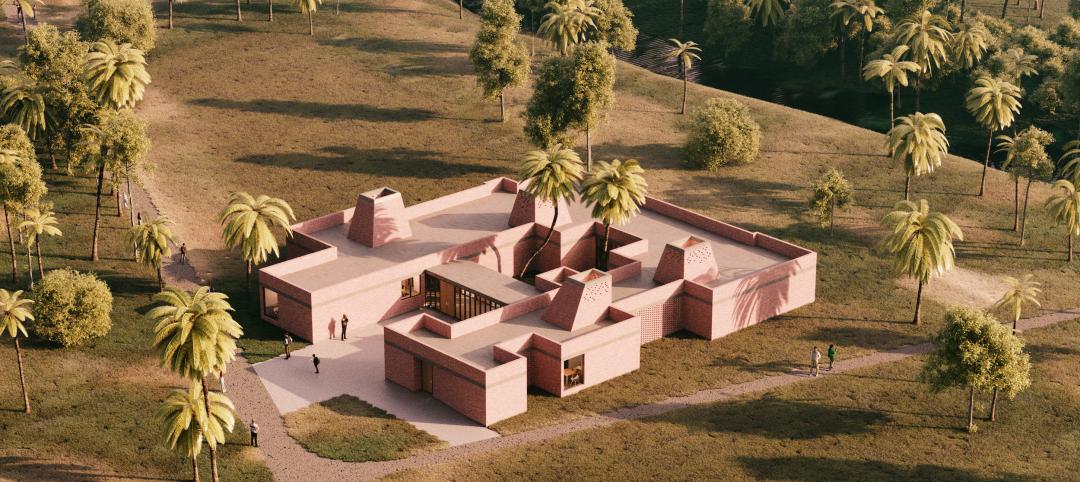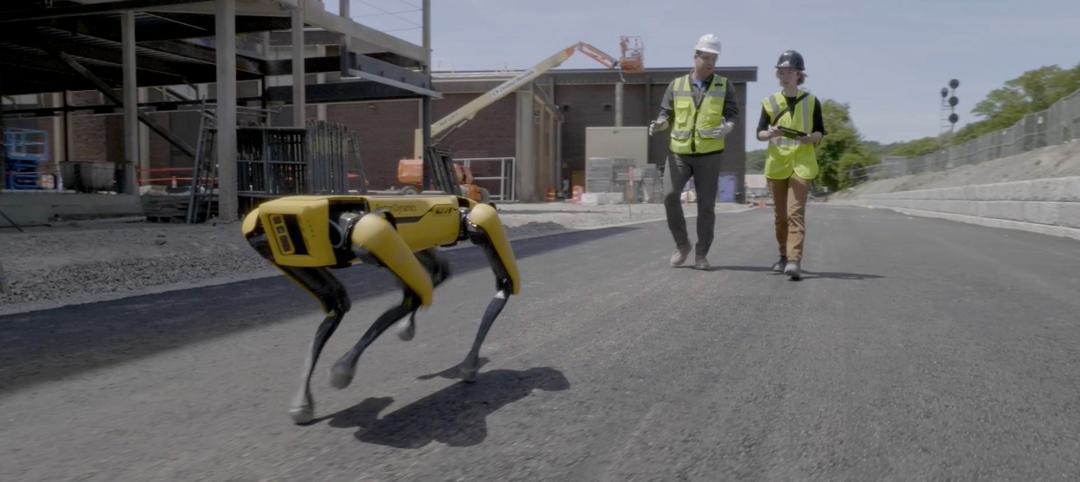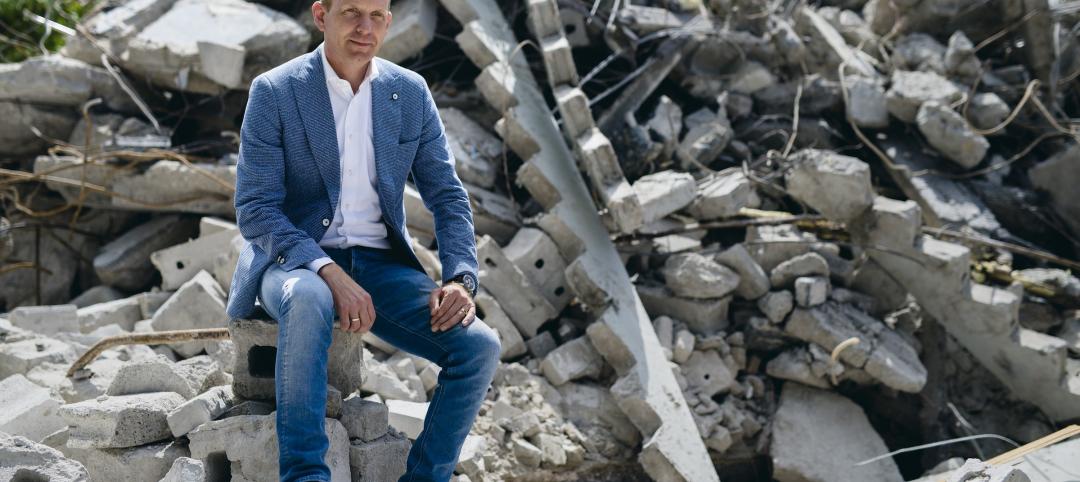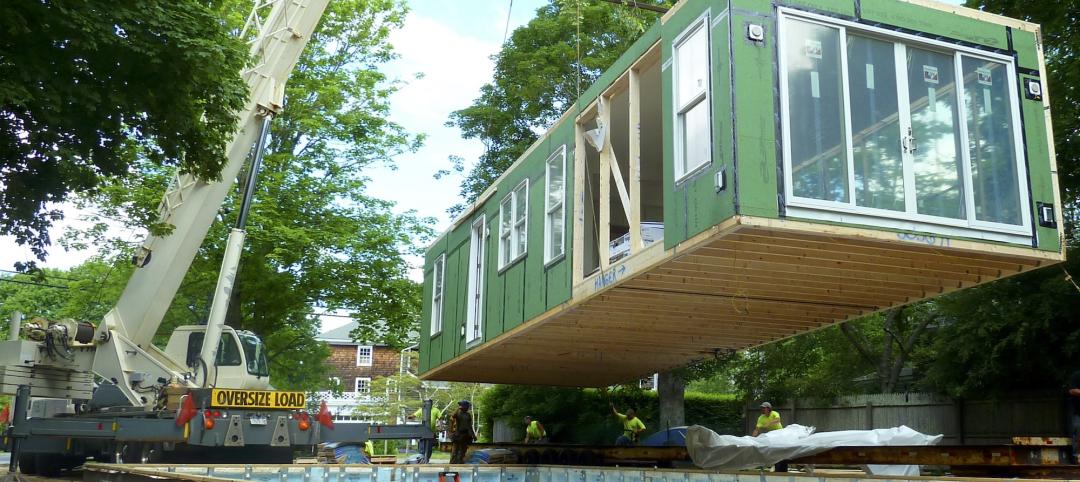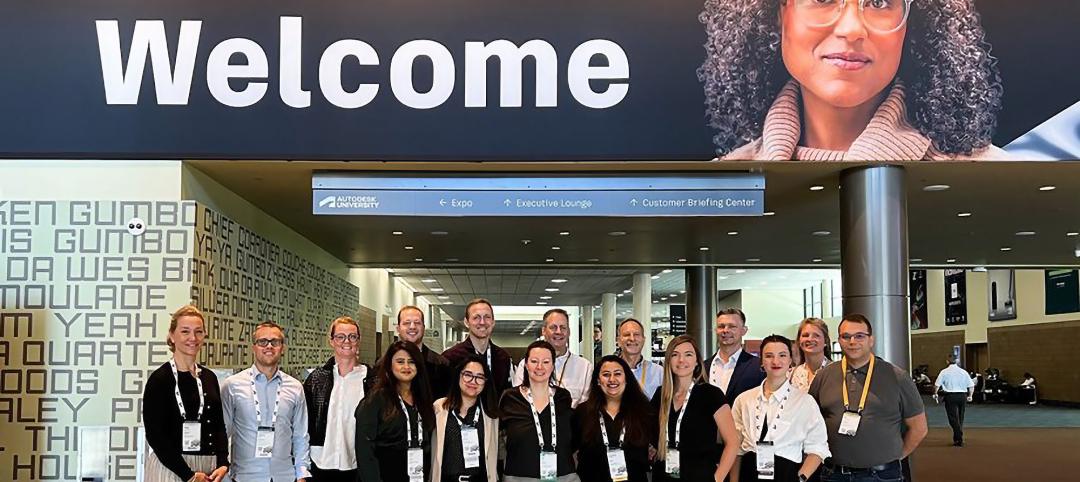Early next year, construction is scheduled to begin on Coral Mountain, a 400-acre masterplan resort in the Coachella Valley near LaQuinta, Calif., which will be the first of its kind whose amenities include an 18-million-gallon water basin that’s activated by artificial wave technology.
The land, which had already been approved for 750 homes, is owned by Meriwether Companies, a private real estate and development firm; and Big Sky Wave Developments, founded and directed by Michael B. Schwab, the son of famed investor Charles Schwab, whose company is one of the country’s largest financial services firms. Michael Schwab formed his company in 2016 to develop exclusive wave-zone resorts.
This $200 million Coral Mountain is designed by CCY Architects. VITA Planning and Landscape Architecture is doing the land planning and landscaping, and MSA Consulting is the CE. The rest of the building team, including its GC, will be brought on board later this year, according to a spokesperson for the project.
The full-service hotel and resort will include a private club, multiple dining venues, and adventure sports offerings. In its latest design, the 2,000-ft-wide wave basin will replace a previously approved golf course, and is expected to use less water.
The technology that will provide the resort’s guests with the longest rideable, open-barrel, human-made wave in the world comes from Kelly Slater Wave Company, a division of Santa Monica, Calif.-based World Surf League, which creates surf-specific events, experiences, and storytelling. Kelly Slater Wave Company is named after the 11-time world champion surfer Kelly Slater.
RESORT’S WAVE BASIN CAN HANDLE UP TO 20 SURFERS AN HOUR
Coral Mountain will be the first resort in the U.S. to deploy Slater’s wave technology, which uses a giant hydrofoil that is pulled through the water to push out the wave for 700 yards, for an almost one-minute wave from start to finish. Large end bays can accommodate 15 to 20 beginner-to-intermediate surfers each hour on either end of the wave basin. (The only other place with this technology in use is Kelly Slater’s Surf Ranch in Lemoore, Calif., and that doesn’t have resort facilities or end bays built into it.)
“We are excited to bring to life an unprecedented vision for an experiential resort development, curated for today’s active and engaged consumer here in Southern California and beyond,” said Noah Hahn, Partner, Meriwether Companies, in a prepared statement.
The project spokesperson says Coral Mountain is being financed primarily through equity and some low-leverage debt. Despite the coronavirus that shut down many businesses in California, the project continues to go through the approvals process, and Meriwether and Big Sky don’t anticipate delays in the construction start or its completion target in 2022.
Also see: Mega surf parks take entertainment to new extremes
The history of man-made waves has been fraught with business and mechanical failures. Probably the best known startup was NLand Surf Park, which opened in Austin, Texas, in 2016, and whose owner was Coors Brewing Company scion Doug Coors. Until it shut down, NLand was using wave technology from Wavegarden, one of several such providers that are active in the industry sector.
WAVE TECHNOLOGIES IN COMPETITION
In January 2019, Kelly Slater Wave Company, through an LLC, acquired NLand for a reported $4.8 million. Meanwhile, Wavegarden has been pushing its so-called “cove” technology, which was first tested in Spain and last November debuted at The Wave park in Bristol, England. This technology reportedly produces waves as high as two meters.
A spokesperson for World Surf League asserts that the League chose to acquire Kelly Slater Wave Company because “it was the best artificial wave technology where tour pros could train, and the WSL could host world tour events.”
“I originally invested with Kelly in 2013 for my own personal surfing progression,” recalled Schwab, Big Sky Wave Developments’ Managing Director. “I had no idea the impact it would have on my life, and I realized immediately that I had to share this opportunity.”
Related Stories
Design Innovation Report | Apr 19, 2023
HDR uses artificial intelligence tools to help design a vital health clinic in India
Architects from HDR worked pro bono with iKure, a technology-centric healthcare provider, to build a healthcare clinic in rural India.
Resiliency | Apr 18, 2023
AI-simulated hurricanes could aid in designing more resilient buildings
Researchers at the National Institute of Standards and Technology (NIST) have devised a new method of digitally simulating hurricanes in an effort to create more resilient buildings. A recent study asserts that the simulations can accurately represent the trajectory and wind speeds of a collection of actual storms.
AEC Tech | Mar 14, 2023
Skanska tests robots to keep construction sites clean
What if we could increase consistency and efficiency with housekeeping by automating this process with a robot? Introducing: Spot.
AEC Innovators | Feb 28, 2023
Meet the 'urban miner' who is rethinking how we deconstruct and reuse buildings
New Horizon Urban Mining, a demolition firm in the Netherlands, has hitched its business model to construction materials recycling. It's plan: deconstruct buildings and infrastructure and sell the building products for reuse in new construction. New Horizon and its Founder Michel Baars have been named 2023 AEC Innovators by Building Design+Construction editors.
Multifamily Housing | Feb 3, 2023
HUD unveils report to help multifamily housing developers overcome barriers to offsite construction
The U.S. Department of Housing and Urban Development, in partnership with the National Institute of Building Sciences and MOD X, has released the Offsite Construction for Housing: Research Roadmap, a strategic report that presents the key knowledge gaps and research needs to overcome the barriers and challenges to offsite construction.
AEC Tech | Jan 27, 2023
Key takeaways from Autodesk University 2022
Autodesk laid out its long-term vision to drive digital collaboration through cloud-based solutions and emphasized the importance of connecting people, processes and data.
AEC Tech Innovation | Jan 24, 2023
ConTech investment weathered last year’s shaky economy
Investment in construction technology (ConTech) hit $5.38 billion last year (less than a 1% falloff compared to 2021) from 228 deals, according to CEMEX Ventures’ estimates. The firm announced its top 50 construction technology startups of 2023.
AEC Tech Innovation | Jan 14, 2023
CES recognizes a Dutch firm’s wearable technology for construction management
The firm’s TokenMe product offers construction managers a real-time crowd- and asset-tracking solution via low-power, location-aware radio and RFID tags and multiple sensors through which data are processed with cloud-based artificial intelligence.
Virtual Reality | Dec 12, 2022
Supplementing workplace connections through digital knowledge networks
Zachary Wassenberg of Burns & McDonnell breaks down three applications for digital knowledge networks: training, libraries, and instructions.
Digital Twin | Nov 21, 2022
An inside look at the airport industry's plan to develop a digital twin guidebook
Zoë Fisher, AIA explores how design strategies are changing the way we deliver and design projects in the post-pandemic world.



